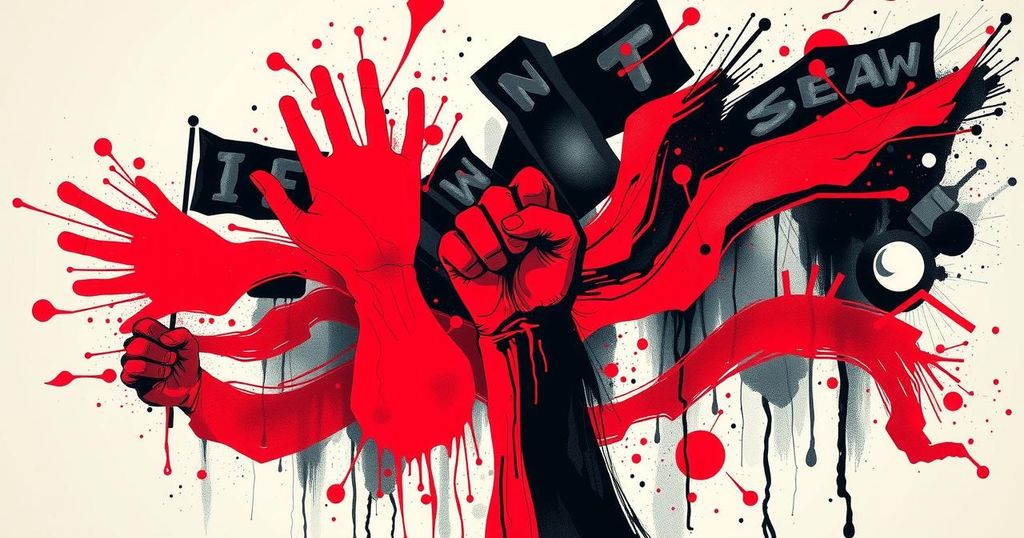Former IRGC Officers Challenge Islamic Republic in Exclusive Interview
Former Iranian IRGC officers, Javad and Arash, revealed critical insights about the regime’s vulnerabilities in a rare interview. They discussed the impact of Israeli intelligence operations, corruption within the government, and the fractures between the IRGC and the regular army, expressing support for Israeli military actions to facilitate regime change.
In a remarkable interview with Israeli media, several former Iranian Revolutionary Guard Corps (IRGC) officers, including Javad, expressed their dissent against the Islamic Republic’s regime. This marked Javad’s first public commentary on his past involvement in suppressing protests and his recruitment into the extremist Basij militia. He revealed insightful details regarding the IRGC’s reaction to the assassination of Hamas leader Ismail Haniyeh, describing it as an “incredibly precise intelligence operation” that showcased the extent of Israeli intelligence penetration within the IRGC.
Javad indicated that the Iranian Revolutionary Guards were taken aback by the assassination, failing to even issue an official statement. Following this incident, Hezbollah’s Secretary-General, Hassan Nasrallah, was also eliminated. Javad described the collapse of Bashar Assad’s regime in Syria as a profound loss for Tehran, stating that the IRGC lost a significant front in Syria, which now operates in Israel’s interest against Hezbollah.
He pointed out Israel’s systematic targeting of influential figures within Iran and mentioned that the IRGC recognizes that both Hamas and Hezbollah might not recover fully, hence they are focusing on operations originating from Yemen. Transitioning from a staunch regime supporter, Javad expressed his disillusionment, criticizing internal corruption and acknowledging the awakening of the Iranian populace.
The interview also featured Arash, a former lieutenant colonel from the Iranian Air Force, who offered an insider perspective on the military’s structure. He delineated the division within Iran’s armed forces between the IRGC and the regular army, the latter of which has been increasingly marginalized due to resource allocation. Tensions have intensified, and Arash mentioned there are factions within the regular army prepared to oppose the regime.
Both Javad and Arash articulated their support for Israeli military actions against Iran’s leadership, contemplating that Iranian citizens would welcome more aggressive strikes aimed at dismantling regime strongholds. They conveyed a sentiment that Israel’s military interventions could enable the Iranian populace to reclaim governance over their country, highlighting a shared hope for the regime’s overthrow. Overall, their reports underline substantial discontent within Iran’s military ranks, suggesting deeper fractures within the regime than previously recognized.
The testimonies of former IRGC officers Javad and Arash provide critical insights into the evolving attitudes within Iran’s military towards the regime. Their expressions of discontent regarding government corruption, military inefficiencies, and the desire for Israeli intervention signal a significant shift in perspective. As tensions rise, these accounts reveal that the dissatisfaction with the Islamic Republic may extend beyond the confines of public dissent and into the military’s ranks itself.
Original Source: www.jpost.com




Post Comment